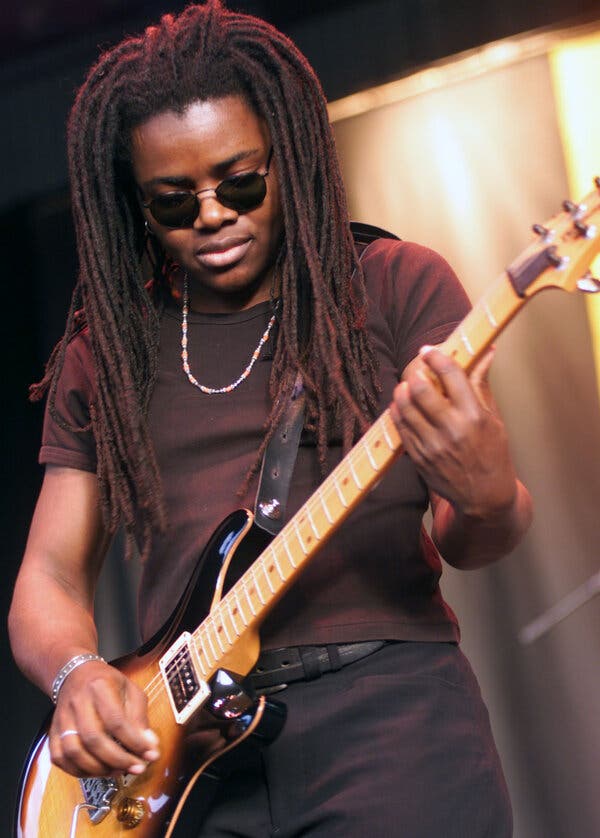Supported by
By Lindsay Zoladz
San Francisco records
“I have not made a press for a long time,” said Tracy Chapman through establishing himself in a bank in the courtyard of the Fairmont Majestic hotel in San Francisco previously this week, with a black cap on his gray and gray flanks.
During the decade beyond, the singer and composer has almost silent, the last two years brought a fervor renewed by her tender folk music. In 2023, Luke Comink published an overwhelming canopy of his first single in 1988, “Fast Car”, and the two performed a deeply moving duo in the Grammys last year. However, Chapman remained resolutely outside the eyes of the public, transmitting interviews at the time of “Fast Car” life and refusing to run for the country music awards, where he took the song of the year, making her the first black woman and black composer, to win a CMA.
But Chapman, 61, accepted this interview because he needs to communicate about anything that is excited about her: the vinyl edition of its multiply homonyms, which came on Friday. “It’s an opportunity for me to say why I wanted to do this task and what it means to me,” he said, “instead of letting the chat speak for me. “
The flowers flourished around them in rich shades of lilac and orange sun, however, Chapman was defeated in discreet neutrals: a pale pink and underground under a black zipper sweater under a jacket -shaped jacket. (“The key to your convenience is to have diapers,” he said about his capricious climate for his city for a long time). More than an hour, he talked about the album, and the more than this functionality of an emotional grammy (he advised Roland Allène “The Notebook: a tale of thinking” the most productive songs have been expelled: the American dream: the American dream.
For a figure that has become greater known for its reservation than its public statements, Chapman was remarkably warm and openly, temporarily with a simple laugh and type. She is an omnitera considered and is considered, speaking in complete sentences that is often stopped for long, but appropriate endings, returning to its original point.
We have recovering the content of the article.
JavaScript turn on in the configuration of your browser.
Thanks for your patience while we review access. If you are in reading mode, leave and attach to your Times account, or subscribe to all the time.
Thanks for your patience while we review access.
Already subscribed? Connect.
Do you want all the time? Subscribe.
Advertisement
